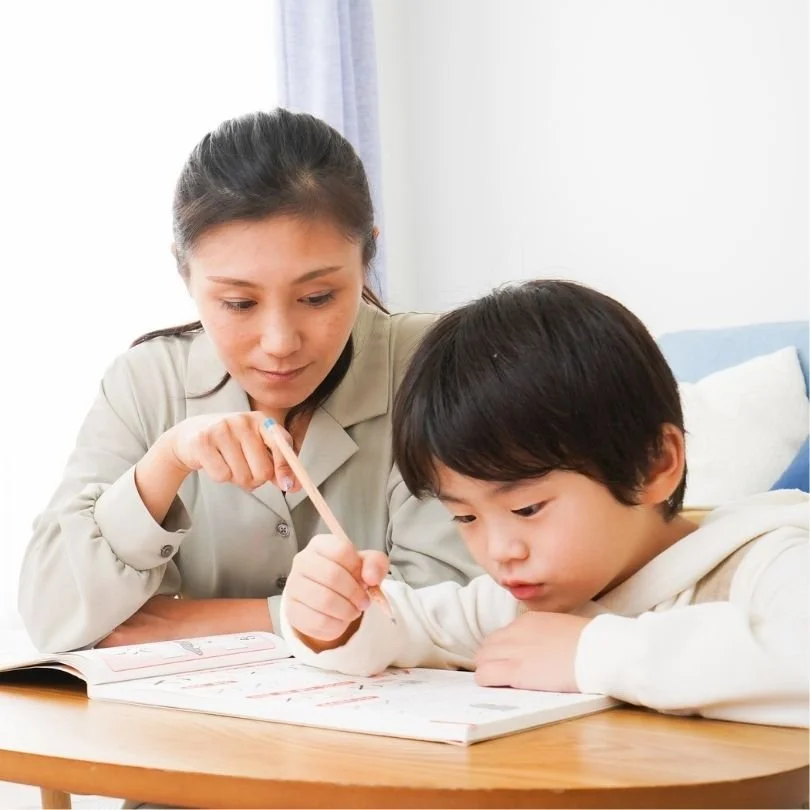Does My Child Have a Learning Disorder? 5 Signs to Look Out For
Recognizing if a child has a learning disorder can be a challenging and emotional process for parents and caregivers. Learning disorders affect how a child understands or uses information, impacting their reading, writing, math, and social interactions.
Early identification is key to providing the right support and interventions to help a child thrive. In this guide, we explore five important signs to watch for, which may suggest your child could have a learning disorder.
What Is a Learning Disorder?
A learning disorder is a neurologically-based condition that interferes with a child's ability to acquire or use skills such as reading, writing, reasoning, or math. According to the American Psychiatric Association, it is not related to intelligence but rather to difficulties in processing specific types of information
While learning disorders are lifelong, they can be managed effectively with timely intervention, structured support, and understanding from the adults in a child’s life.
Top 5 Signs of a Learning Disorder in Children
1. Difficulty with Reading and Writing
One of the earliest signs is consistent struggle with reading and writing tasks. You might notice your child:
Reversing letters (like b and d)
Skipping or substituting words while reading aloud
Having trouble sounding out unfamiliar words
Making frequent spelling errors
Using overly simple sentence structures for their age
Struggling to express ideas clearly in writing
These patterns may signal an issue with how your child processes language.
2. Trouble with Math and Number Concepts
Children with learning disorders often struggle with basic math concepts such as counting, understanding number relationships, or memorizing math facts. They may have difficulties following multi-step math problems or learning time and money concepts, which can affect daily life.
3. Problems Paying Attention and Following Directions
Children with learning disorders often find it hard to stay focused or complete tasks that involve multiple steps. You might observe:
Frequent daydreaming or distractibility
Trouble following verbal or written instructions
Difficulty completing assignments or chores independently
Forgetting what they were just told or asked to do
While attention issues can overlap with other conditions like ADHD, they often occur alongside learning difficulties.
4. Difficulty with Language Skills and Expressing Thoughts
Signs include delayed speech development, difficulty pronouncing words correctly, trouble finding the right words, or speaking in short, simple phrases. These challenges can hinder a child’s ability to participate fully in conversations or express their emotions effectively.
5. Poor Organizational Skills and Memory Issues
Children may frequently lose track of personal items, homework, or belongings, and struggle with remembering facts or instructions. Disorganization can extend to their physical space, such as a cluttered desk or backpack, and difficulty keeping up with assignments or schedules. The Mayo Clinic notes that children with learning disorders often have trouble completing tasks on time, remembering sequences, and maintaining organization, which can affect their academic progress.
Why Is Early Awareness Important?
Recognizing these signs early does not mean labeling a child but being aware can lead to timely evaluation and intervention. The sooner learning challenges are identified, the earlier a child can access tools and support to improve their educational experience and confidence.
Without early recognition, a child may struggle in silence, often internalizing their difficulties as personal shortcomings. This can lead to declining self-esteem, anxiety, and a loss of confidence in their ability to succeed. Early intervention not only supports academic growth but also helps children feel understood, capable, and empowered to thrive both in and out of the classroom.
What Can Parents Do?
The first step is to observe their behaviors and learning patterns over time. Pay attention to consistent difficulties that don’t seem to improve with practice or support. These might show up during homework, conversations, or everyday tasks. Keeping a record of these patterns can help you better understand your child’s challenges and give you something concrete to discuss with educators or professionals.
It’s also important to open up communication with your child’s teachers, caregivers, or other adults who interact with them regularly. They can offer valuable insights into how your child performs in different settings and help identify patterns that may not be obvious at home. If concerns persist, seeking a professional evaluation can provide clarity and guidance.
Supporting Children at Home
While professional support is essential, small, consistent strategies at home can also make a big difference in your child’s learning experience:
Break down tasks into smaller, manageable steps.
Use visual aids and maintain consistent routines.
Focus on your child’s strengths and celebrate effort to build confidence and motivation.
When and How to Seek Professional Help
If signs persist and impact your child’s learning or emotional well-being, seeking a professional evaluation is crucial. Pediatricians, psychologists, speech therapists, and educational specialists can perform comprehensive assessments to clarify the nature of the difficulties and recommend effective interventions.
Schools often provide testing and resources, and private evaluations can offer additional insights. Early and collaborative involvement with professionals ensures that your child receives personalized, evidence-based support tailored to their unique learning profile.
Early Recognition Leads to Lifelong Impact
Identifying the signs of a learning disorder isn’t about labeling your child, it’s about understanding how they learn best and giving them the right tools to succeed. When learning challenges are recognized early, children are more likely to build the confidence, skills, and emotional resilience they need to thrive in school and beyond.
If you're considering getting support to better understand your child's learning needs, we're here to walk that path with you. Schedule a free consultation with us today to take the first step toward clarity and confidence.
Frequently Asked Questions
What are early signs of a learning disorder in children?
Common signs include difficulty with reading, writing, math, following directions, or expressing thoughts. These challenges are usually persistent and noticeable at both home and school, often leading to frustration or avoidance of learning tasks.
How do I know if my child’s struggles are normal or a learning disorder?
If your child shows ongoing difficulty despite support and these challenges affect daily functioning or self-esteem, it may signal a learning disorder. Comparing behaviors across settings and consulting a professional can help clarify what’s typical and what’s not.
Can learning disorders be diagnosed in young children?
Yes, learning disorders can be identified in early childhood, especially when delays in language, attention, or academic skills appear. Early diagnosis provides the opportunity for timely, targeted support that can greatly improve long-term outcomes.
Will a learning disorder affect my child’s intelligence?
No, learning disorders do not affect intelligence. They relate to how a child processes specific types of information. Many children with learning disorders are bright and capable, but they benefit from individualized strategies and consistent support.
What should I do if I think my child has a learning disorder?
Start by tracking your child’s difficulties and discussing concerns with teachers or caregivers. If challenges persist, seek a professional evaluation to understand your child’s learning profile and explore supportive resources tailored to their unique needs.






